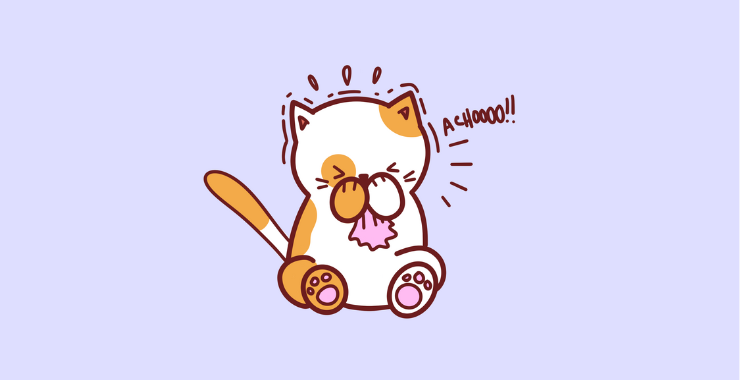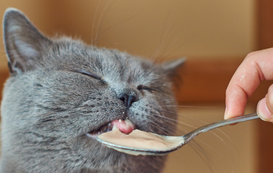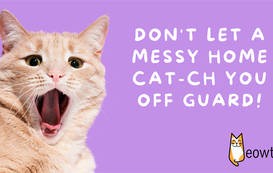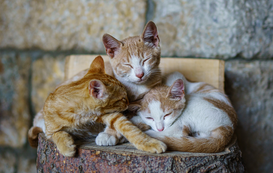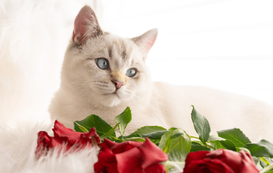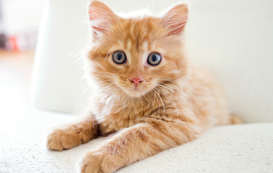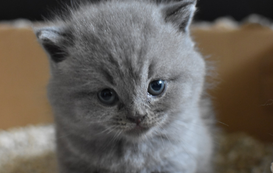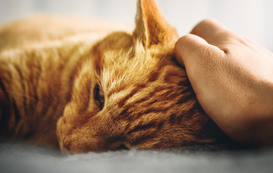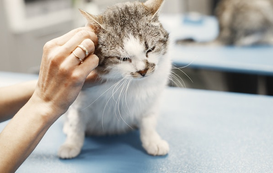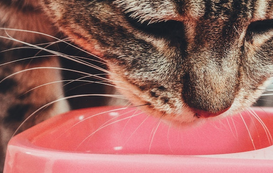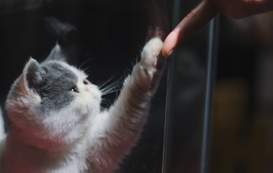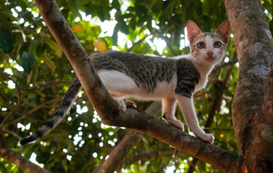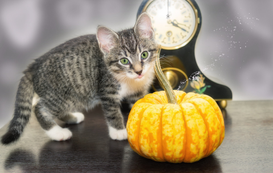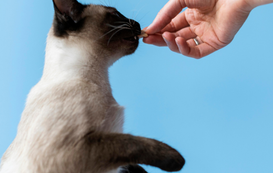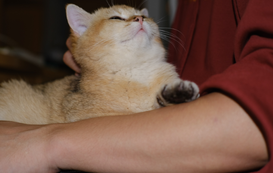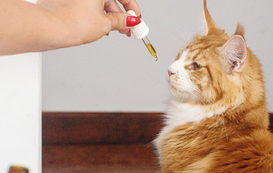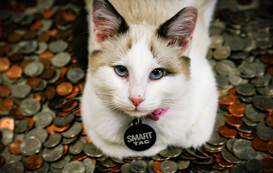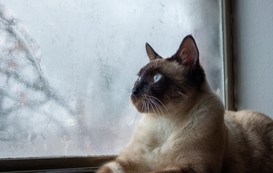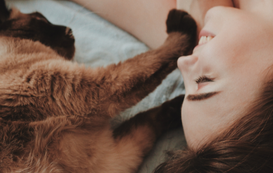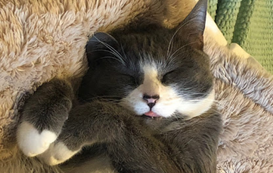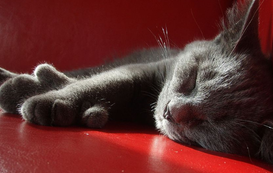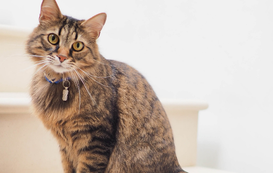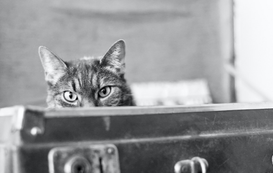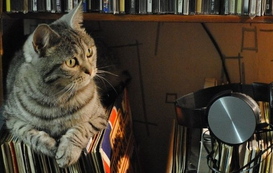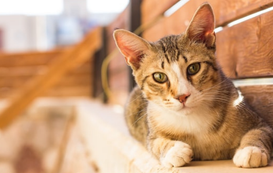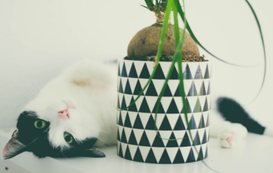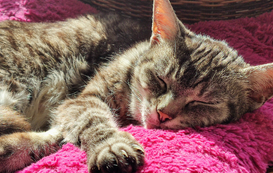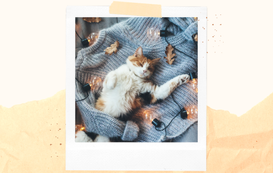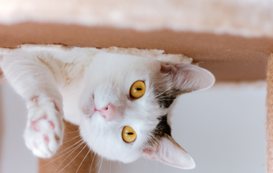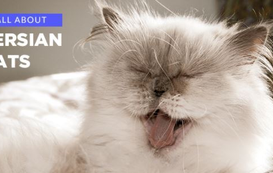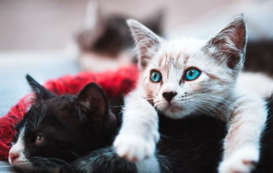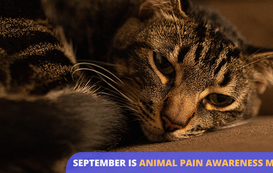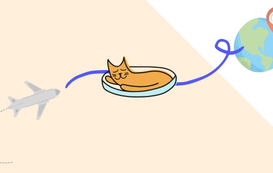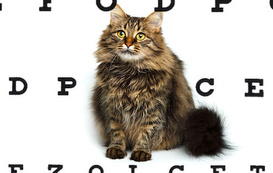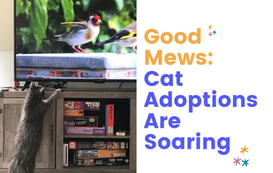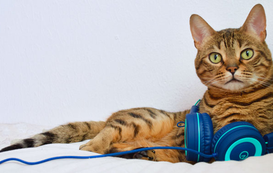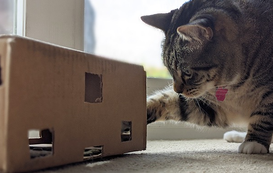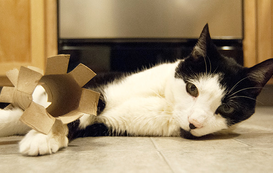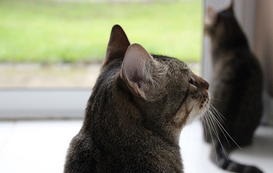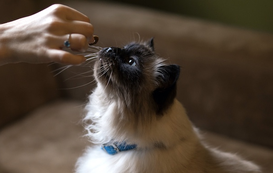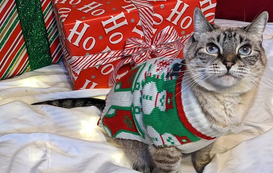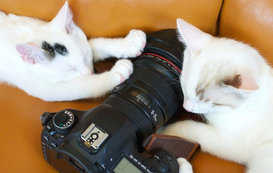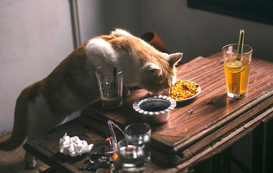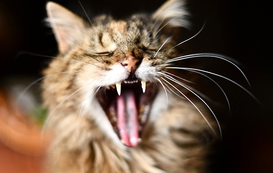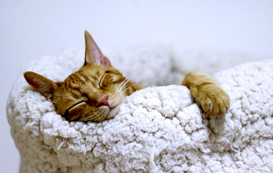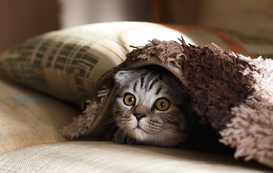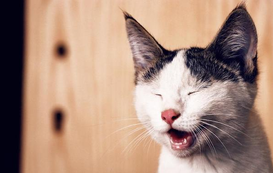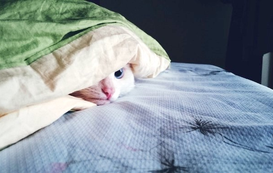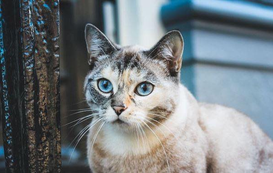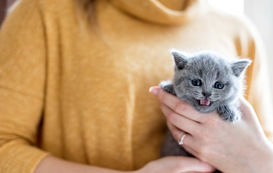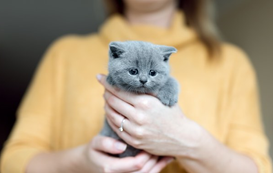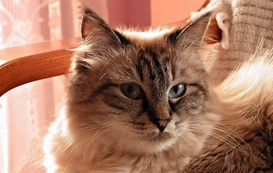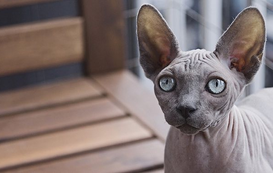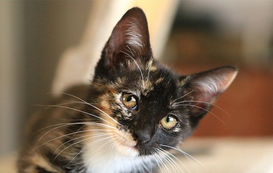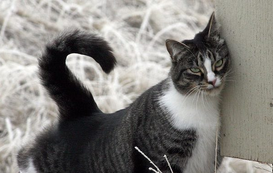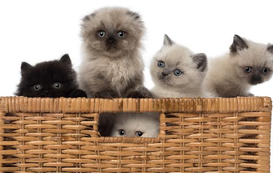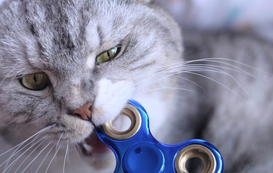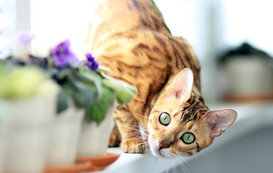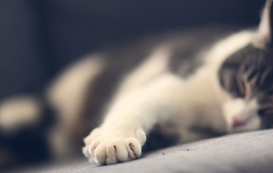Mostly, cats sneeze for the same reasons we do-something is in their sinuses that shouldn't be-but there can be multiple causes. Sneezing is a normal action for cats, just like any other animal, but there are a few times you should pay special attention to their sneezing habits. Let's dig deeper into the how and why of cat sneezes.
What Can Make a Cat Sneeze?
Some common causes of cat sneezes include:
- Irritants in the air, including spices, cleaning products, essential oils, dust, and other airborne particles like cigarette smoke.
- Upper respiratory infection-yes, your cat can also get a cold.
- Allergens
- Their own fur is in their nose
A sneezing cat is usually no cause for concern. Pay attention to whether or not they have any nasal discharge, and don't worry too much about the occasional sneeze. If you think your cat has a cold, help them stay warm by giving them a heating pad and extra blankets. Feed them wet food and run the humidifier where they usually sleep. If you're worried your cat has allergies, talk with your vet about giving them over-the-counter antihistamines.
Why Is My Cat Sneezing, But Not Sick?
You might sometimes get dust in your nose or sneeze because something has tickled you, but one sneeze doesn't mean you're sick. The same applies to your cat. Cats sneeze the same as humans when they need to clear out their nasal passages and it's usually nothing to worry about.
It is important to consider your cat is up-to-date on their vaccines, especially for Bordetella, which cats can pick up if they spend time in a boarding facility or shelter. Also, try to help your cat avoid contact with other cats who might have feline immunodeficiency virus or FIV. A common sign your feline friend has FIV is constant sneezing.
What Should I Do if My Cat Is Sneezing?
It's okay to leave your cat to their sneezing so long as it's not lengthy, bloody, or producing a lot of snot. It's a normal reaction to environmental factors, and cats need to sneeze to get irritants out of their nasal passages for the same reasons humans do.
If your cat sneezes for several days with increasing frequency or worsening symptoms, cat parents might consider taking their fur baby to the vet to determine the underlying cause of all the sneezing. They might have a foreign object lodged in their nasal passages or be experiencing a flare-up of an undiagnosed case of FIV or feline leukemia. Dental disease can also make your cat sneeze, so you might consider staying on top of brushing their teeth.
Will Cat Sneezing Resolve on Its Own?
For the most part, cat sneezing will resolve on its own. If your cat sneezes in response to a tickle in their nose, then it should stop relatively quickly. If your cat continues sneezing for a long stretch or has abnormally thick, green snot, then it is often best to schedule an appointment with your vet.
When Should I Worry About My Cat Sneezing?
There are some instances when you should take your cat to the vet for sneezing. Cat sneezes can signify a more serious problem ranging from cancer to bacterial infections to dental disease. You might consider taking your cat to the vet if the sneezing:
- Is excessive
- Is accompanied by a loss of appetite
- Gets worse
- Continues for more than a few days
Other symptoms to watch for in addition to sneezing include:
- Decreased appetite
- Drooling
- Trouble breathing
- Runny nose
- Weight loss
- Eye discharge
These can all be signs that something more serious is going on with your cat's health. Talk with your vet about the next steps, such as a biopsy, x-rays, or a rhinoscopy. Run tests to check for underlying diseases like feline herpesvirus, calicivirus, or rhinitis.
Don't stress too much about sneezing. It's a normal part of a cat's health to sneeze sometimes. If you're worried about leaving your kitty alone in case they get sick, consider booking a cat sitter on Meowtel. Sitters on Meowtel are background-checked and often die-hard cat lovers! Sitters can help keep an eye on your fur baby and alert you if something seems amiss.
Ready to find the purrfect sitter for your feline friend? Find a cat sitter on Meowtel today!

